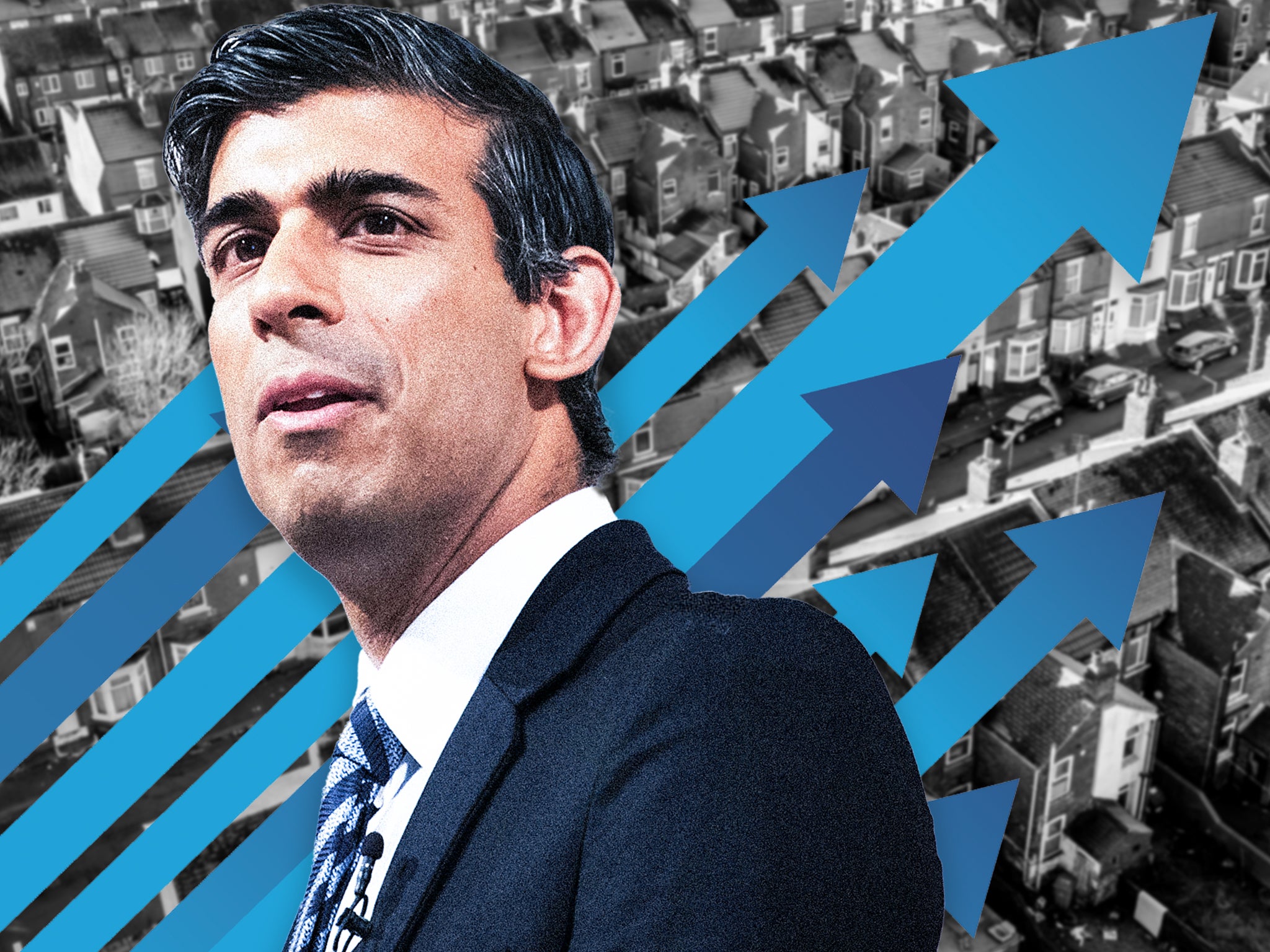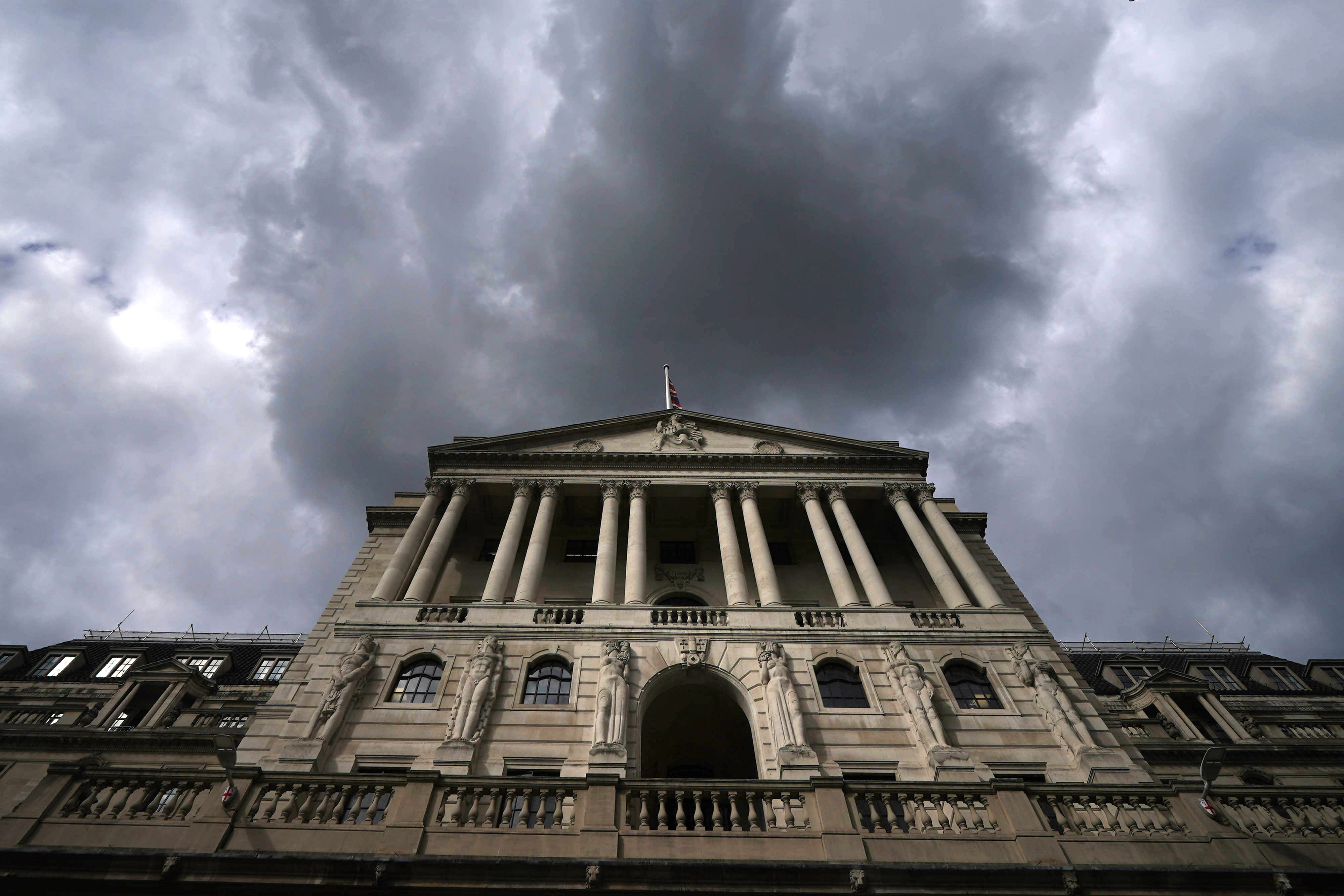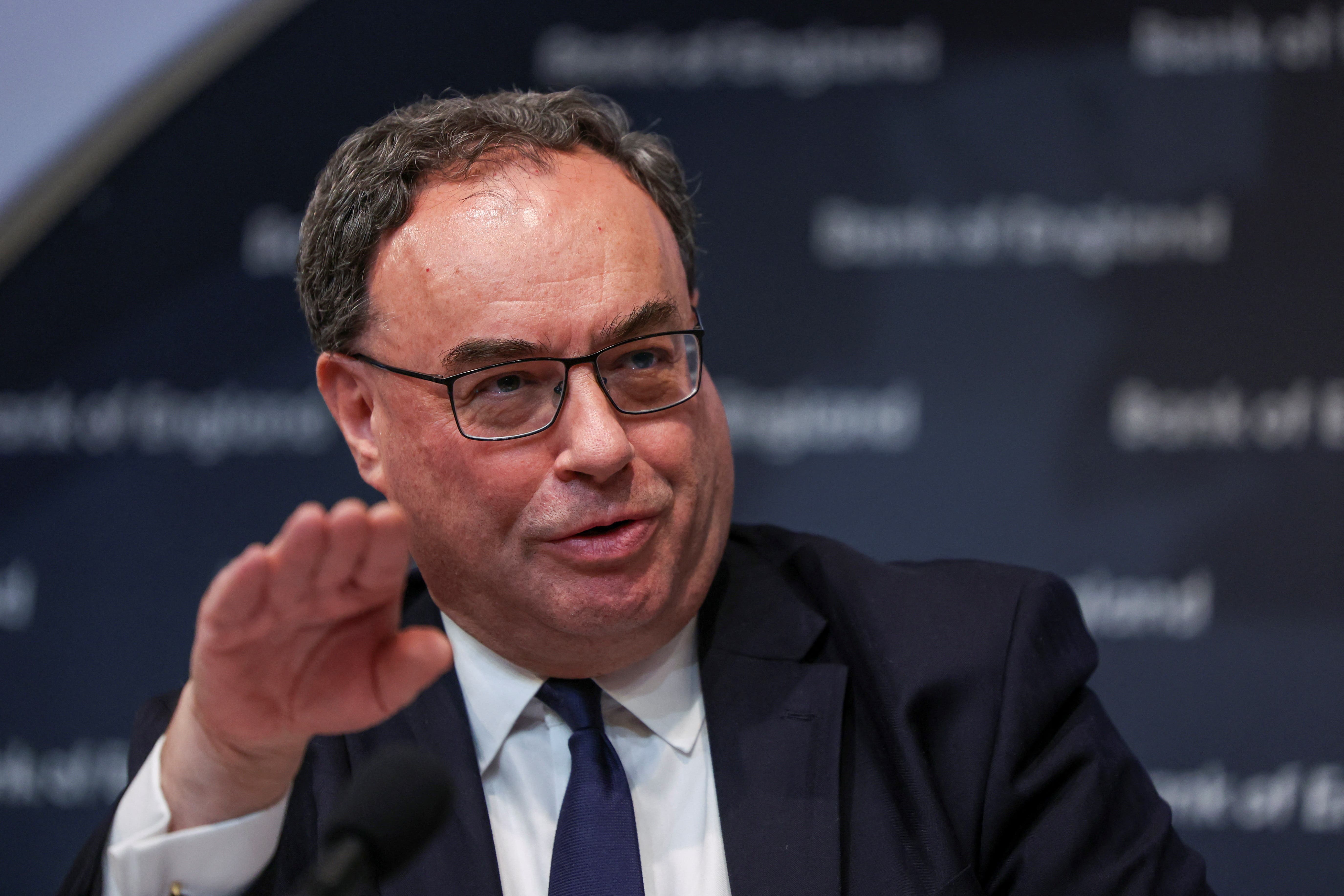Rishi Sunak warned of ‘serious shock’ for mortgage holders as Bank of England poised to raise interest rates
Experts warn 1.4m homeowners will see a fifth of their disposable income wiped out by soaring mortgage rates

Your support helps us to tell the story
From reproductive rights to climate change to Big Tech, The Independent is on the ground when the story is developing. Whether it's investigating the financials of Elon Musk's pro-Trump PAC or producing our latest documentary, 'The A Word', which shines a light on the American women fighting for reproductive rights, we know how important it is to parse out the facts from the messaging.
At such a critical moment in US history, we need reporters on the ground. Your donation allows us to keep sending journalists to speak to both sides of the story.
The Independent is trusted by Americans across the entire political spectrum. And unlike many other quality news outlets, we choose not to lock Americans out of our reporting and analysis with paywalls. We believe quality journalism should be available to everyone, paid for by those who can afford it.
Your support makes all the difference.Rishi Sunak has been warned homeowners face a “serious shock” as the Bank of England prepares to hike interest rates for the 13th time in a row, piling more pressure on struggling mortgage holders.
The Institute of Fiscal Studies (IFS) said 1.4m homeowners – half of whom are under 40 – will see a fifth of their disposable income wiped out by soaring mortgage rates, while trade body UK Finance said it expects 98,500 borrowers to fall behind on payments this year.
On Thursday the central bank is expected to increase the so-called base rate from 4.5 per cent to at least 4.75 per cent, and possibly as high as 5 per cent.
It comes after a shock inflation reading on Wednesday showed the rate at which prices are rising flatlined in May at 8.7 per cent, instead of an expected fall.
The predicted interest rate change – aimed at bringing spiralling inflation under control – will add further pressure to the bank accounts of millions of homeowners through higher monthly mortgage payments.
The average rate on a two-year deal has already shot up to 6.15 per cent, Moneyfacts figures on Wednesday showed – almost triple the level seen last March.
Influential think tank the IFS warns that the average mortgage holder will be £3,360 worse off a year, or £280 a month, because of the increases, wiping out around a 10th of their disposable income.
Research economist Tom Wernham said many people bought homes when interest rates were low and were now “exposed” to the higher payments.
“For many, the increase in monthly repayments is going to come as a serious shock,” he said.
“Given the cost-of-living pressures people are already facing due to high food and energy price inflation, these significant increases in mortgage costs could not come at a worse time.”
Trade body UK Finance predicts 98,500 borrowers will fall behind on payments this year, rising to 110,300 in 2024 – the highest level since 2014.
And it forecasts the number of repossessions will hit 7,300 this year, climbing next year to 9,700.
The unfolding mortgage crisis has led to calls for the government to intervene, including from backbench Tory MPs.
Right-wingers Jonathan Gullis and Sir Jake Berry both called for the return of a Thatcher-era tax break offering relief on mortgage interest.
The Liberal Democrats called for a £3bn fund to protect those struggling with payments, paid for by reversing tax cuts on banks.
But the government has ruled out providing support, insisting that to do so would prolong inflation and defeat the purpose of interest rate hikes.

Former Bank of England rate-setter Andrew Sentance told The Independent there is “great danger” in thinking the government will “step in to solve all known problems”.
He added: “There has been a bit too much shock horror about the fact that interest rates have moved up to where they are now. That had to happen at some point. Perhaps people who are taking out mortgages should have thought that was a possibility.”
Mr Sentance said those most severely affected represent a “minority” of the population.
“I am not sure there is much the government should do,” he said.
His comments echoed former Bank of England chief economist Sir Charlie Bean, who on Tuesday told The Independent taxpayers “should not be asked to bail out” households who have taken on “excessively large mortgages”.
Professor Abhinay Muthoo, an economist and fellow at the National Institute for Economic and Social Research, said the government’s priority was "not to rock the boat”.
“An election is only a year away, and they don’t want to do anything interesting or imaginative in terms of economic policy,” he said.
But he called for the bank to stop any further interest rate hikes.
The New Economics Foundation think tank said further rate hikes carried a “serious risk” of pushing the country into a recession.
Prof Muthoo continued: “Inflation is a problem, but it is under control, and it will come down over the course of the coming 12 months or so. We really don’t need to raise rates yet further.
“There is a risk from doing so of putting the economy into recession, which will hurt deeper.”

Senior economist Lukasz Krebel told The Independent: “The impact of interest rate rises take their time to affect the economy – the Bank must now stop and wait for this to happen.
“In the meantime, the government needs to focus on supporting those hit hardest by rising housing costs and should consider a scheme to support those at risk of repossessions.”
An advisor to Chancellor Jeremy Hunt said the Bank of England may need to spark a recession to bring prices under control.
While not offering households financial support, Mr Hunt has intervened in the crisis and summoned bosses from Britain’s leading banks to Downing Street for a summit at which he will urge them to do more to support customers.
The chancellor will ask on Friday what help banks plan to give to those unable to keep up with higher mortgage payments, as well as what “flexibilities” they will offer to families in arrears.
He and the prime minister have been warned the Tories face a wipeout in the so-called “blue wall” seats in the south of England over a backlash from mortgage holders hit by soaring borrowing costs.
Experts have called for banks to accommodate those who fall into arrears with payment holidays, extended loan terms and the ability to switch to interest-only. They have also called for lenders to show leniency with those who fail to make payments, with former pensions minister Baroness Ros Altmann telling The Independent they should “not do so lightly”.









Join our commenting forum
Join thought-provoking conversations, follow other Independent readers and see their replies
Comments